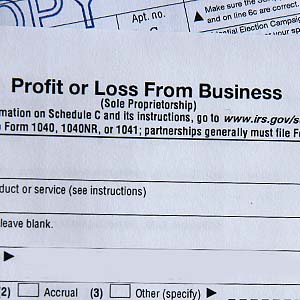By Caitlin Kelly
When we started dating 14 years ago my now-husband drove me nuts with the phrase he still uses, (and which I now just laugh at):
“We could do one of two things”…
I’m sure — Broadside readers being a smart, educated bunch — some of you surely know, and can explain to me, the underpinnings of such a narrow worldview.
It feels these days as though everyone has joined one side of another. Our worldview is binary:
All or nothing.
Black or white.
Right or wrong.
Gay or straight.
Liberal or conservative.
Pro-choice or pro-life.
Gun control advocate or “gun nut” (not my phrase!)
It feels absurdly and, to me increasingly, stupidly, American.
Hello…Congress?
When most of us know, or realize, that life is a hell of a lot more complicated than that. It is shaded and nuanced. And our most firmly and fixed beliefs can change over time.
I had two moments of this recently, both within an hour, one on-line arguing, (and quickly withdrawing from useless online arguments), with some woman I don’t know in a on-line forum, and the other at my local hardware store.
I was struck, hard, by the realization how easy it is to fall into a habit of thinking (why?) in terms of either/or, not both. Exclusion, not inclusion. Narrowing, not expanding, our notions of the possible.
People who speak several languages and/or have lived for long periods outside of their home culture and/or are married to or partnered with someone of a very different background often move beyond this limited thinking because it is challenged every day.
What we consider “normal” is simply normal for us.
The first argument was over work and its relative importance in our lives.
Americans — especially those who have never lived beyond their borders — often feel that working really hard all the time is the single most useful thing to do with one’s life. Being “successful” materially is the classic goal. And a very skimpy social safety net ensures that few can stray far from the grindstone because unless you’re debt-free, rich and/or have a shit-ton of savings, you will soon be broke and homeless and then, missy, you’ll be sorry!
The woman I was arguing with, a manager within my industry, kept positing two poles — marathoner/ambitious/admirable or useless/annoying/slacker. For fucks’ sake.
Very few people love their work every day until they die. If they do, awesome! But making anyone who doesn’t agree feel the same way somehow less than, or imputing slackerdom to their ambivalence, is bullshit.
Some people actually work for the money. Not passion.
For many people — and not simply “slackers” — their true passions and joys lie beyond the workplace: faith, family, travel, volunteer work, pets, and/or creative projects that simply make them, and others, happy.
My second “Duh!” moment happened while trying to buy gray matte-finish paint for our balcony railings. There was only white and black on offer. The sales clerk and I stood there staring at the cans, my frustration growing, his boredom blossoming.
I was pissed there wasn’t exactly what I wanted — when it was right there in front of me for the seeing of it, and making it myself.
Black plus white = gray.
How embarrassing that it took us so long to figure that out. I felt like an utter fool for not noticing that right away. It was a great wake-up call.
Do you find yourself trapped into this way of thinking?
What would it take for you to even consider the value of the other side of an argument?



